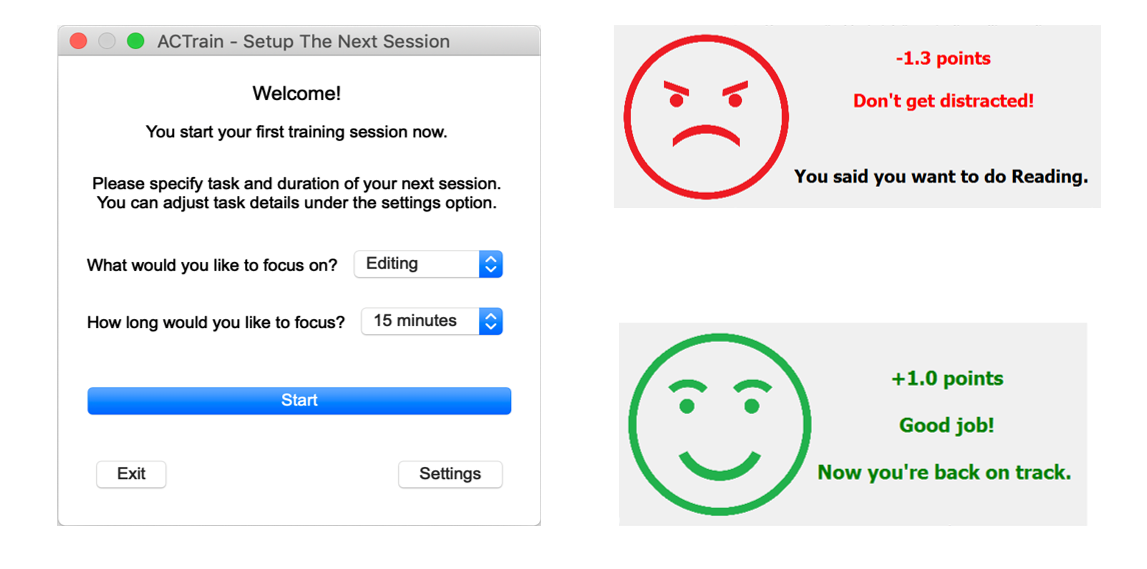
People's limited attentional resources are challenged by the high prevalence of potential distractors in daily life. How well people can cope with the arising demands is moderated by individual attention control abilities that have proven to mitigate potentially harmful effects (Wirzberger & Rey, 2018).
In this project, we develop a computer-based training application that can enhance individual attention control abilities when people get distracted. To promote metacognitive reinforcement learning, the training provides metacognitive feedback on the value of goal-directed attention when people distract themselves from a self-chosen task. Contrary to existing approaches that use artificial tasks in non-transferable situations, our approach re-designs real-world settings into optimal learning environments for stable and sustainable skill acquisition.
We evaluate the training in behavioral field experiments, where our participants use the application over a defined period of time in their daily study or work contexts. Based on the learned value of control (LVOC) model (Lieder, Shenhav, Musslick, & Griffiths, 2018), we model the development of attention control skills from the obtained human data.
